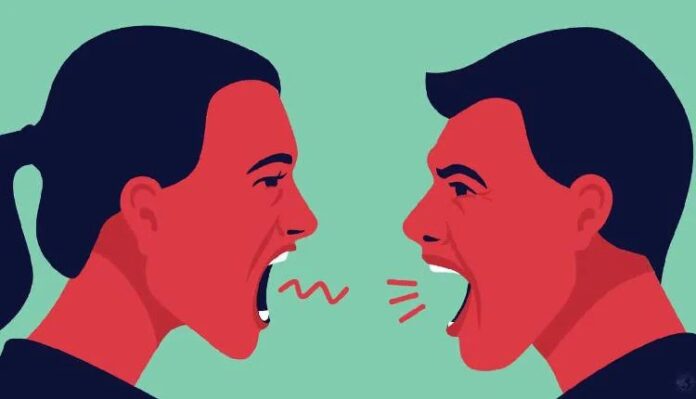Your happiness is greatly influenced by other people, particularly those closest to you. Living and appreciating imperfect people will have its ups and downs, but eventually, partnerships should bring us joy rather than stress.
Every person on earth is worth establishing rich, fulfilling, and secure connections with. And it is everyone’s duty to contribute to the development of those connections. To start building healthy relationships instead, let’s learn how to recognise the warning signs of a toxic relationship.
One essential final thought before we continue: Do not confuse toxic with abusive. Abuse is a particularly destructive sort of behaviour, and no one should put up with it for any length of time or reason. If you or someone you know is involved in a violent, sexually, or emotionally abusive relationship, please get help from the appropriate professionals, such as the police. You deserve to live a peaceful life with your loved ones.
Signs that you’re in a toxic relationship:
You constantly feel uneasy with your partner
You feel tense when your companion is present. You have broad feelings of exhaustion, draining, and “blueness” with no apparent cause. In any relationship, there are occasions when you feel uneasy near your partner, especially during stressful situations or when you’re sick. But it ceases to be typical once it becomes the rule. Whenever you’re with your partner, you have a feeling that something is off. That is the right moment to think about just how toxic your partnership is.
You lack a sense of emotional security
Can you communicate your ideas and thoughts to this person in an open manner? Does it matter what you say? Concerned of what they may do or say if you’re brutally honest, do you think as if you’re constantly limiting yourself? When it comes to healthy relationship, people can both be imperfect and responsible. You can be honest with one another about the wonderful and shameful things that have happened to you as well as who has harmed you. You can be truly loved while also being fully seen.
You feel ignored and exploited
Imagine the following fictional scenario: What if you had a lovely garden and you neglected to water, weed, or fertilise it? It wouldn’t be a happy ending. Not to seem like a weirdo, but people, like gardens, require nurturing. You’re not in a loving relationship if your lover doesn’t respect and take care of your basic needs-not because you can’t, but rather because they worry about you. You’re probably being taken advantage of in addition to being ignored.
You sense that you are no longer yourself
People that are toxic frequently absorb, control, and shape others to suit their own objectives. The partnership is dominated by their goals and interests. You frequently find yourself going against your morals, visiting unsettling locations, as well as spending time with individuals who make your anxiety symptoms worse merely to pacify them. It can be challenging to see this specific situation on your own. Give your close friends or family members the go-ahead to intervene in your life if they notice you vanishing into another person’s life. Those who are closest to us frequently see insights that we do not.
Your relationship is preventing you from developing as a person
It’s wonderful to watch your companion develop as a person in a caring relationship. Some toxic spouses, however, would rather their partners remain the same. They do not want to watch them making an effort to better themselves. Your partner reacts negatively or makes fun of your accomplishments whenever you make efforts to improve your life, whether professionally or personally. You may eventually decide to give up on attempting to improve yourself altogether in order to cease being judged for your attempts.
You’re taking on a problematic role
In our relationships, we frequently recreate the relationship narratives from our youth. It is these narratives that serve as our life’s route maps, for better or worse. For instance, a woman might wed a man who spends all his time playing video games on the chair in order to take on the role of a mother. Or a child may decide to care for a father who is an addict, thinking it is their responsibility to help their parent recover. Being trapped in dysfunctional roles like these is an indication of a toxic relationship because such a partnership cannot be both life-giving and nurturing for both parties.


